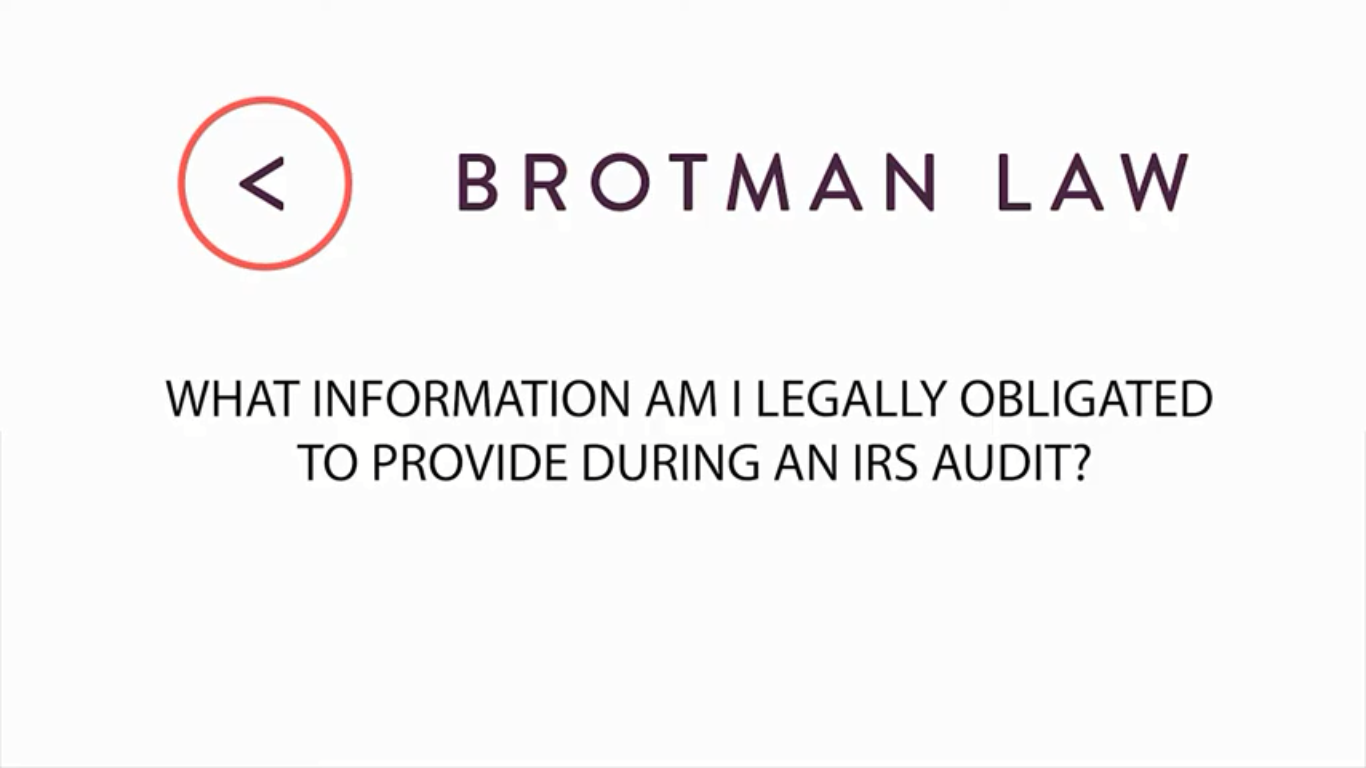Well the answer to that is pretty much everything. Once you’re under examination, the government has pretty broad latitude to investigate anything they think is relevant. If you don’t provide something, then the IRS agent has the authority to issue a summons for something. A summons is a demand that you produce records. So let’s say you didn’t want to produce your bank records. The IRS could summons you and command you to bring them down or the IRS could summons the third party like a bank and demand production of that document. If for some reason you still didn’t produce the records after the summons, then the IRS could get district counsel involved and they can go to court and enforce the summons order. So what will happen a lot of the times is people will make a serious error on their taxes, like they’ll leave off income and then they won’t want to provide the evidence to the IRS to kind of hide their tracks. But the problem with that is the IRS in a lot of cases can get the information anyway so if you don’t provide it to them and make it easy on them, they’ll do it by force, so just understand walking into this that the IRS has very broad authority to gather the information it needs to conduct an examination. The government has given the IRS very broad latitude when it comes to audits because they want them to be effective so realize that if you’re asked to produce a document, you’re probably going to be asked to turn it over.
